The immensely powerful oil and gas industry is facing rapid changes in regulations across international markets. With so many tasks and operational hazards, oil and gas businesses require a management system that is flexible, efficient, and accurate to streamline and optimize the company operations. This creates the opportunity for ERP software for the oil and gas industry to make a sizable and positive huge impact.
Similar to other industries, ERP software in the oil and gas industry is among the most popular solutions being used across various business verticals to save time and money and reduce labor costs. An increasing number of oil and gas partnerships are pursuing ERP integration to automate business procedures and streamline their document management process.
The Popularity of ERP Software
ERP software development companies have witnessed immense growth in the last few years with over 30% of the new ERP software for industries having been developed from 2016 to 2020. There is expected to be a 40% increase in 2021 due to social distancing regulations. As the 3rd largest consumer of oil and gas, many Indian companies also require an ERP system as their numbers are increasing every day. With the growing popularity of ERP Adoption by the oil and gas industry, this rate will grow by around 18% in the next 5 years.
The demand for more streamlined processes and improved performance of administrative modules are on the rise. ERP is a great investment for organizations in every sector, and we’ve explained the reasons why below.
Why Does the Oil & Gas Industry Need ERP?
ERP or Enterprise Resource Planning refers to management software designed to plan, manage, and automate all the core tasks of an organization, be it supply chain, services, payroll, monitoring, and more. ERP software can be used to simplify business procedures and store essential documents and data. This makes access available anytime and anywhere and ERP software can manage and analyze metrics across functions and present reports based on jobs or specific user decisions.
These are Some Major Reasons Why the Oil and Gas Industry Needs an ERP system.
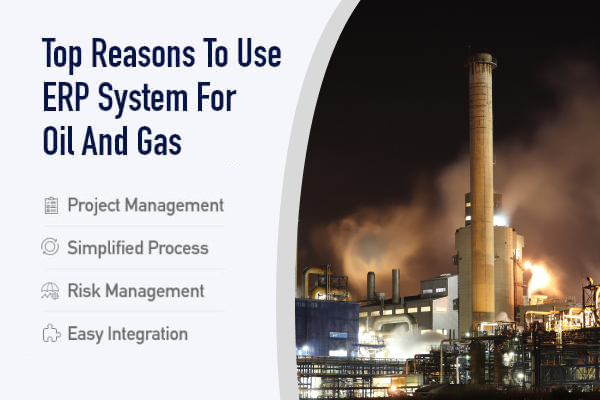
Project Management: Oil and Gas ERP software enables companies to manage onsite and offsite projects with organized schedules, internal communications, resource planning, and training. This ensures that the project can be completed within the set budget and deadline.
Risk Management: As an ever-changing industry, oil and gas need risk management with advanced support to understand the potential of a particular project. If there are tasks related to risk management, then an ERP system can be used to deliver insights and contingency plans for emergencies.
Simplified Process: ERP system increases productivity and efficiency with simplified storage and real-time access to business information across different channels. It improves decision making and enhances the standard of function within a company.
Easy Integration: ERP software integrates with third-party applications in terms of cost and plans. Organizations can easily manage resources and costs, thus helping meet deadlines and commitments.
Working Flow of Oil and Gas ERP System
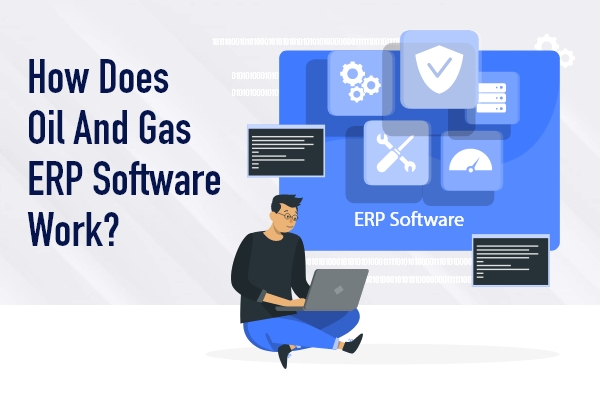
ERP solutions for oil and gas involve a module with different responsibilities to reduce manual labor and time by as much as possible. With a dashboard and admin panel, owners or managers can handle operations, project resources, inventory, and fetch details whenever they need. Due to its easy integration and data accuracy, ERP software makes the processes faster and more convenient for the companies. ERP helps complete these projects on time by interpreting complex projects like joint ventures and helps monitor such elements as per the regulations updated online. However, the unique features and functionalities of every ERP system do vary depending on specific business requirements.
Must-Have Features of ERP Software for Oil and Gas Industry
If you are looking to build an ERP software for oil and gas, here are the features to include:
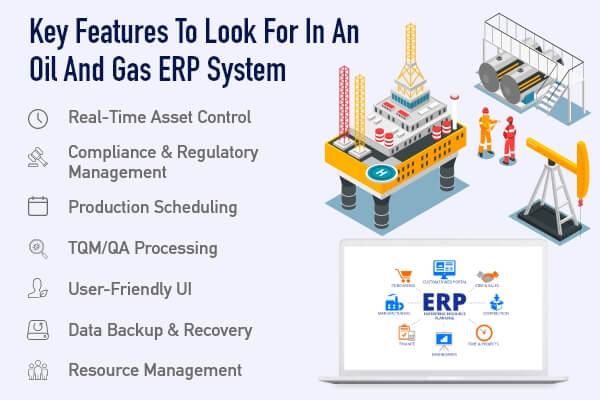
* Real-Time Asset Control
When it comes to the oil and gas sector, asset control is among the most crucial responsibilities. Its comprehensive dependencies span several departments, including R&D, development, shipment team, refinement, and operations. Within such a complex network, ERP software must deal with asset control efficiently without any errors.
* TQM/QA processing
With the constant enhancements and improvements modern businesses experience, quality assurance and monitoring is a must, especially in the oil and gas sector. Continuous improvement is the central goal for all departments, including Research and Development, cost management, supply chain, and material handling get involved in the process. Make sure you build an ERP software that can maintain the particular checkpoints during the research of an O/G platform.
* Production Scheduling
Another important feature that you must add to an oil and gas ERP software is scheduling capabilities for production and refinement. The system should easily handle the schedule management of all the departments, whether it is for a single unit or high-volume segments. This helps companies to finish a project on time without manual labor and calendar checks.
* Compliance & Regulatory Management
The oil and gas sectors are highly regulated and scrutinized. Therefore, it is important to adhere to government regulations set by both the country you operate in and the country you might be doing business with. Ask your development company to make an ERP system for the oil and gas industry for keeping track of updated regulations and automated reporting features.
* User-Friendly UI
The effectiveness of your ERP depends on how easily users can understand the model and learn to utilize the functionalities. Make sure you hire the best ERP Software Development Company with experienced UI/UX designers to make your system less complicated and easy to navigate.
* Data Backup & Recovery
Unlike commercial ERP software, the oil and gas ERP system include a large amount of data and international schedules, which should not be lost for any reason. Data backup and recovery features allow admin to back up data in a secure cloud-based system with security measures to prevent theft and data leak.
* Resource Management
From the salary, schedules, staff details, new hire records and responsibilities of each worker, resource management is another essential feature of a gas and oil ERP system.
Recommended Reading-
How to Make an ERP System for the Education Industry?
Other features to consider in ERP development for oil and gas:
- Automated record management
- Inventory tracking and management
- Partner details and regulations
- Task allotments
- Communication channels and chatting features
- Training and risk assessment portal
How to Develop an Oil and Gas ERP System?
If you are looking to develop a dedicated ERP system for oil and gas companies, here are the main points to consider:
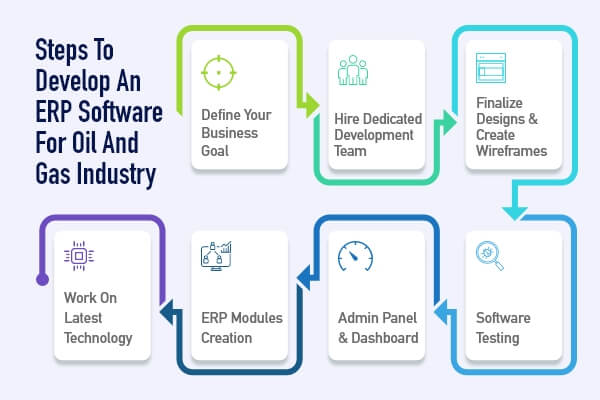
1) Define Your Goals
An ERP system in the Oil and Gas Industry allows the admin to identify problems and find the right solution for those issues before they happen. With ERP software, these alerts can be configured to prevent information loss from the systems, which can resolve any difficulties related to preventing problems.
For this reason, you must define the requirements for your development team before getting into the development of the oil and gas ERP system.
2) Find the Right Development Team
Once you are done with the market research and requirements, the most important step is to find a suitable ERP software development company to guide you throughout the process from start to finish. With experience and expertise, a skilled development team can simplify the process and deliver results.
3) Finalize Designs & Create Wireframes
The next step is to ask your developers to address the technological requirements and define a roadmap for the project. Determine the designs, roles, rough drafts of the features, tools, ideas, and technologies you want to include so that you are ready to get ahead with the development.
Your project manager will come up with the wireframe to stay aligned with your expectations. Based on the functionalities, finance management, CRM, supply chain, and other departments, there should be separate ideas for each section.
4) Choose the Right Technology
Due to its complexity, the oil and gas industry needs a system that runs smoothly for a vast majority of tasks at the same time. Selecting the right technology and toolkit for development is a key decision that will affect functionality. For sharing, you can choose the cloud server for better security and in-house maintenance.
Programming languages like JavaScript work best for the front-end whereas Node.js for the back-end. Similarly, you need to find a reliable database for secured data storage to manage all formats and files.
5) Integrate ERP Modules
Before jumping on the final development step, you need to integrate a web-based ERP and test it with the existing infrastructure to review if the system matches the security, functionalities, and integration. Once complete, install all the features you have determined during the wireframe. Migrate business data and take a look at the features mentioned above to ensure you have designed the basic structure of ERP software.
6) Admin Panel & Dashboard
Design an intuitive interface for the dashboard and admin panel so that the users can finish all the administrative tasks and scheduling without any hassles. Discuss your dashboard requirements with the developers and get at least 2-3 options before finalizing a custom-made ERP dashboard.
7) Testing
After the back-end and front-end development of ERP software for oil and gas, the testing phase requires an in-house team to develop a test strategy and create a suitable testing program. To execute the plan, the in-house team utilizes the complete testing program and checks if there are any glitches or bugs causing delays or technical errors. With a dedicated testing team, you can expect a highly scalable ERP software able to handle a large amount of data and changing compliances.
How Much Does an Oil & Gas ERP Development Cost?
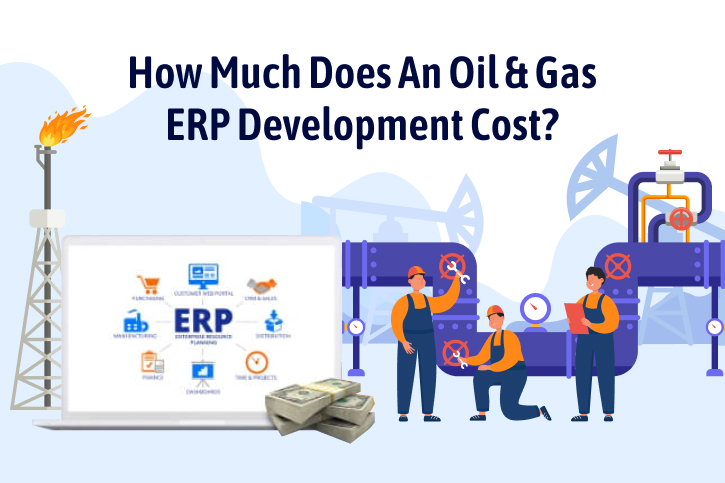
When it comes to oil and gas ERP Custom software development cost, there is not one particular way to estimate the budget and investment for any industry. Whether it’s a simple ERP system development or for a complex system like oil and gas, the cost depends on the features, development company, and the number of departments covered in the software.
Here are some major factors to determine the development cost of ERP software:
1) Development Team
If you choose to outsource a development team, you will pay around $500 to $1000 per month, and Software calculation depends on the timeline and customizations you are looking for. The locations of the agency and teams also determine the overall cost and basic service charges.
2) Development Cost
Development cost includes third-party software add-ins, designing, implementation, and other steps. Some ERP development companies offer you a comprehensive chart for understanding the pricing whereas others include this within the development fee and can cost you around $20,000 to $40,000.
Other factors
1) The very first step is consulting to an Expert and the cost of a consultation varies depending on the level of expertise.
2) The more features you add, the more cost you will have to bear to make the ERP software as unique and effective as possible
3) our product may require extensive testing if features are enriched. It may add additional cost but generally, it is included in the package.
4) Maintenance and Support for technical issues and 24/7 availability
Keeping all these factors in mind, the overall software development cost for oil and gas starts from $20,000 and $400,000 depending on the country.
Hire the Most Reliable ERP Development Team for Your Organization
The oil and gas industry are an asset-heavy industry with a lot of money and security concerns. Whether it is maintaining a link between staff and supervisors, handling supply chain, or creating an accurate report of expenses and inventory, each of the tasks needs attention to detail and smooth functions. ERP software is the best solution for hassle-free project management. But to find the best ERP for oil and gas, you must hire a suitable team of developers who understand your requirements and deliver exactly what you expect.
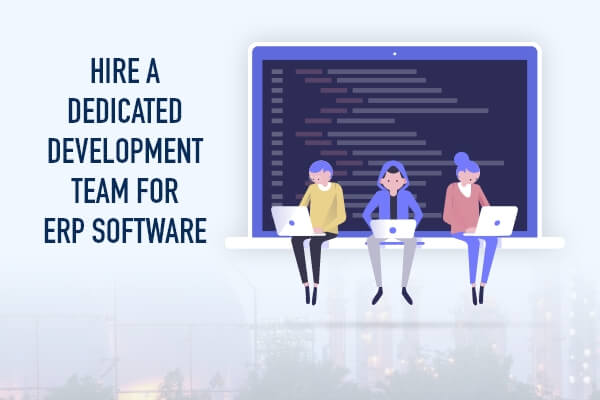
In terms of experience and skills, our team at ConsultingWhiz offers complete transparency during the development of ERP Software to reduce the downtime and ensure real-time performance data and automated project scheduling. With our advanced development platforms, user-friendly interface, and systematic wireframe, you will be able to leverage the custom ERP system to benefit your business. As a leading Software Development Company in USA, we have helped hundreds of clients across the world and are willing to simplify business processes with our technical expertise at the most affordable cost.

Mike is the founder of ConsultingWhiz LLC, Software development company in the USA, he has 15+ years of experience in agile technologies and development. I’ve worked with many satisfied owners of customer servicing businesses. Let’s connect today to get started on your path to 100% automation, reduced overhead costs, large ROI, and so much more.
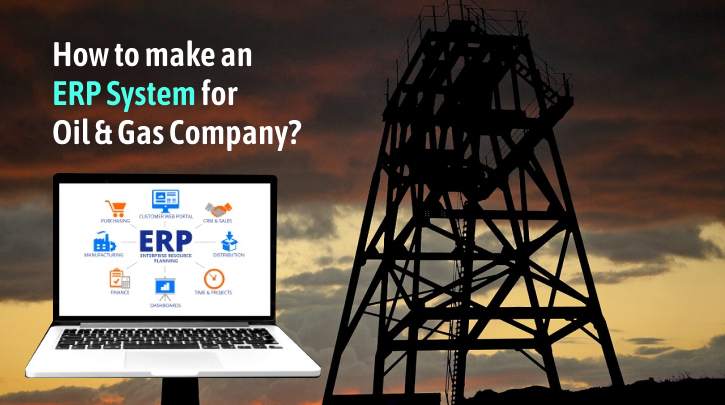

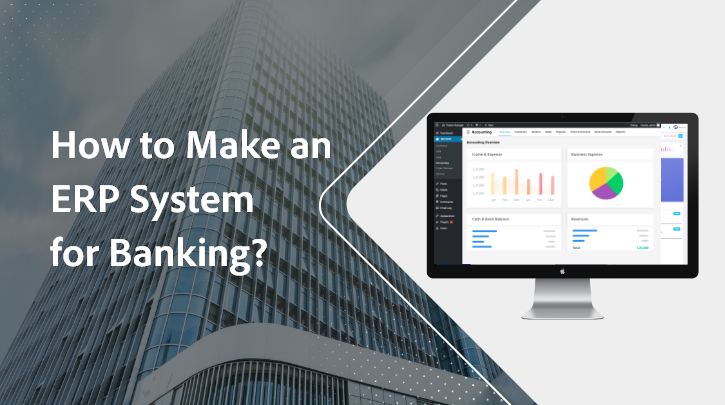


 Mobile App development
Mobile App development Web Development
Web Development Custom Software Development
Custom Software Development Iot Development
Iot Development
 949 656 9676
949 656 9676 contact@consultingwhiz.com
contact@consultingwhiz.com
